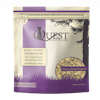
Thanks to the current COVID-19 pandemic, at least in the U.S., shopping for just about anything has gotten … interesting, to say the least. My local grocery stores have implemented limits on how many shoppers can be inside at any given time, and once inside signs everywhere explain product limits and restrictions (particularly in the baby, cleaning and non-perishable foods aisles). Local and online shopping have turned into a gamble for the strangest things — try to find a set of dumbbells or other light workout gear, and I’m sure history books will one day tell of the Great Toilet Paper Shortage of 2020.
It’s clear that the omnichannel shopping trend, which has been in play for a while now in all industries, including pet food, is being expanded significantly as consumers do their best to find whatever they need wherever it happens to be available, or however they can get it as social distancing normalizes and various cities and states go on lockdown.
How are pet owners likely to respond to this “new normal?”
Anecdotally, we have been told that pet food companies are seeing sudden and significant growth in their sales for March 2020, as people all over the world do their best to stock up on food and other products for their pets in these uncertain times.
“Pet product consumables will if anything have gotten a short-term bump in Q1 2020, as pet owners stocked up on pet product consumables such as food, treats and litter,” predicted Packaged Facts in its March 18, 2020 pet market bulletin “Assessing coronavirus pandemic impacts on the pet industry.”
But unexpected runs on product can create shortages, as evidenced in pet food by bare chain grocery store shelves and messages about delays from online retailers (such as Chewy.com, which currently says that “Due to high demand, current delivery times are running considerably longer than usual on food and supplies.”).
Then again, there is the adaptability and determination of pet owners when it comes to taking care of their pets.
“A few factors internal to the market may moderate the impact of product shortages, while some general market factors may increase their severity,” said Packaged Facts in its report. “First … it takes a lot to stop a U.S. consumer, especially with omnichannel and cross-channel shopping for pet products already common among pet owners. Certainly, with essentials such as pet food, and even with pampering products such as pet treats, substitutions will likely be made before pet owners go home or log out empty-handed.”
In the aftermath of the Great Recession, private label got a boost as consumers made substitutions, and pet products were certainly part of that. In “U.S. Pet Market Outlook 2010–2011,” Packaged Facts reported that “in the mass-market outlets tracked by IRI, private-label sales of pet products rose 14% in 2009 to US$921 million compared with the total market increase of 5%.” Private label accounted for disproportionate shares of dog food and cat food sales gains at the time, according to the report, and it’s unsurprising that something similar might happen now.
Watch the e-commerce channels
While increased financial conservativism might lend itself to opportunities for mass-market grocery stores, current common sense (stay at home!) means online retailers are “well-positioned to continue gains in shares and sales,” according to the Packaged Facts coronavirus bulletin. “The surge in internet sales of pet products has spurred a massive pet market investment in e-commerce logistics that should help shore up the products side of the industry in the coming months.”
Even specialty stores that are still open, like PetSmart and Petco, are heavily touting their online capabilities, from curbside pickup that originates with an online order to savings on one-time and repeat delivery options. This, coupled with reduced store hours and an increasing urgency to be out in public as little as possible for the common good, means we’ll likely see quite the shift to shopping in the digital marketplace.
Briefly: Other COVID-19 insights from Packaged Facts
- Non-medical pet care services will take the hardest short-term financial blow, especially in the case of business and leisure travel-related pet boarding.
- The pandemic will have a negative impact on the U.S. supply of China-sourced goods and ingredients, potentially including nutraceutical ingredients used in pet supplements, foods or treats.
Contact Me
View our continuing coverage of the coronavirus/COVID-19 pandemic.



















